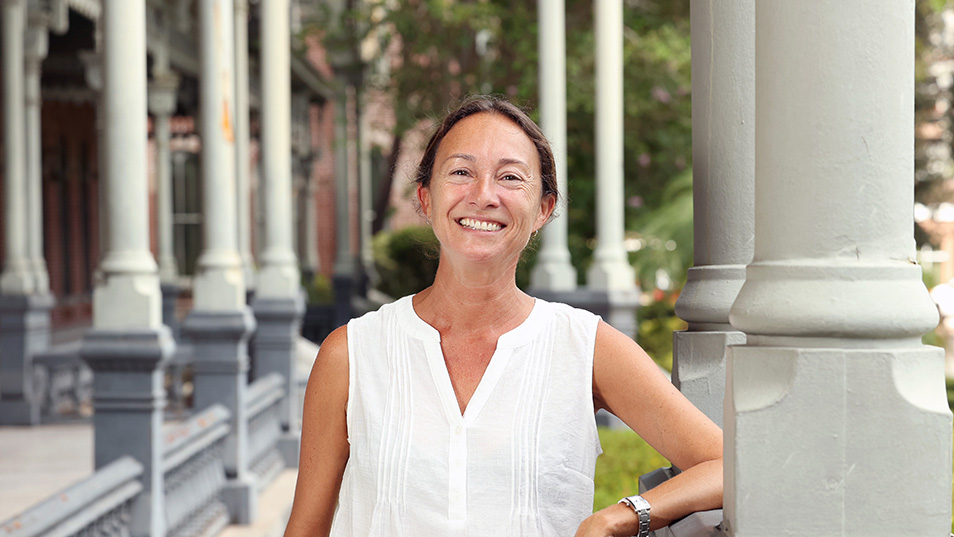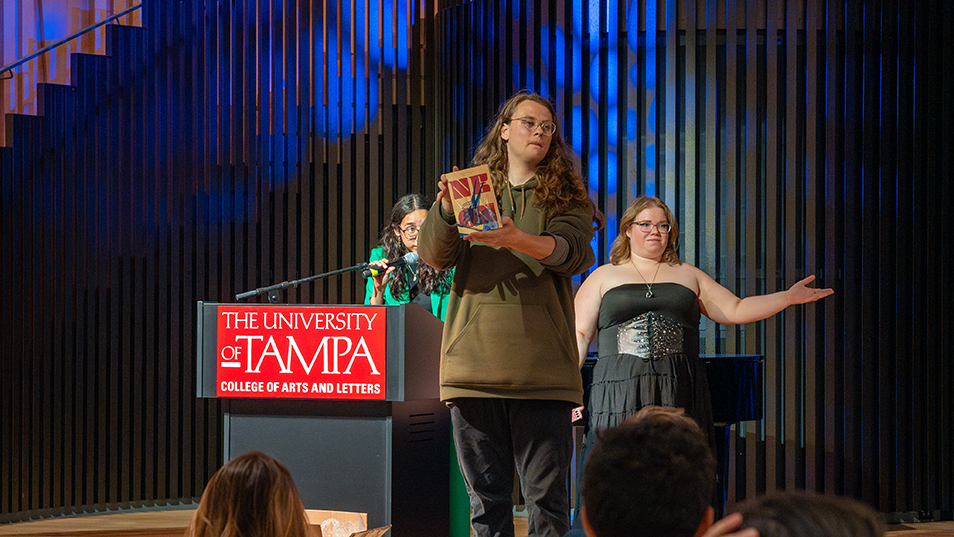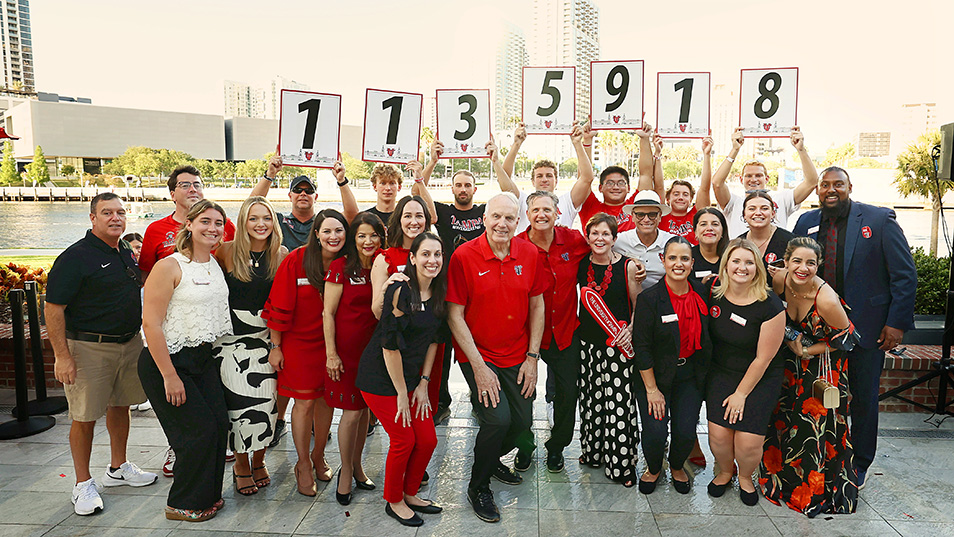Published: February 13, 2024
Navigating the Past, Present and Future in the Women, Gender and Sexuality Studies Minor
The Women, Gender and Sexuality Studies (WGS) minor at The University of Tampa offers any student a chance to explore how class, age, region, religion, history, race and more affect gender and sexuality. It’s a minor that can complement any major by offering students the chance to critically reason and learn fundamental strategies to thrive in the world.
 Sarah Fryett is an associate teaching professor of English and writing and co-chair of the Women, Gendar and Sexuality Studies minor. Photo courtesy of Jessica Leigh Herndon
Sarah Fryett is an associate teaching professor of English and writing and co-chair of the Women, Gendar and Sexuality Studies minor. Photo courtesy of Jessica Leigh Herndon
We spoke to the associate teaching professor of English and writing and co-chair of WGS, Sarah Fryett, to tell us more about the program.
What does Women, Gender and Sexuality Studies offer to UT students?
The WGS minor at UT offers students a unique interdisciplinary program of 20 credit hours. Students may take any approved courses from colleges across the University.
WGS, more specifically, focuses on women, gender and sexuality and how those elements intersect with race, class, ethnicity, religion, language and ability, among other topics. Students immerse themselves in conversations that emphasize social, political, cultural and economic areas of the past, present and future.
What do you wish more people knew about the topics of WGS?
Oftentimes, I find students think that WGS is only about women, gender and sexuality, but the field is so much more than that. WGS is a robust discipline that emphasizes the concept of intersectionality, which I think is best explained by Kimberlé Crenshaw.
She says, “Intersectionality is a lens through which you can see where power comes and collides, where it interlocks and intersects. It’s not simply that there’s a race problem here, a gender problem here, and a class or LGBTQ+ problem there.”
WGS examines how oppression hurts on multiple, interlaced levels.
What do you think are some of the most misunderstood things about WGS?
WGS is not about bra burning or hating men, and goes beyond women’s history by examining historical movements and individuals. WGS courses are not group therapy either. WGS is an academic field of theory and practice that is and needs to be for everyone.
What are the class environments like?
The WGS classrooms are supportive and encouraging, yet informative and challenging. We embrace history and theory while also looking to practice activism, community outreach and make change.
What type of student should take this minor? Any specific majors?
All students would benefit from obtaining a WGS minor, and especially students interested in gaining insight into critical past, present and future conversations surrounding gender and sexuality and their interconnecting fields.
What is an example of a job that might benefit from someone who has taken this course of study?
WGS creates a perceptive, thoughtful and engaged individual who thinks in a critical and conscientious capacity, which is essential to any job: from nursing to teaching to marketing to journalism.
Is anything coming up in WGS that we should look forward to?
We’ve got a lot of fabulous items on our Spring 2024 agenda, which you can find on our new Instagram, @wgs_ut!
We’ll also be hosting a panel discussion in the Ferman Center for the Arts, Charlene Gordon Theater, on March 18 from 4-6 p.m. currently titled “LGBTQ+ Rights and Activism in Florida” with a representative from Equality Florida.
To learn more about the Women, Gender and Sexualities Studies minor at UT, visit ut.edu/wgs.
Story by Lena Malpeli '25



